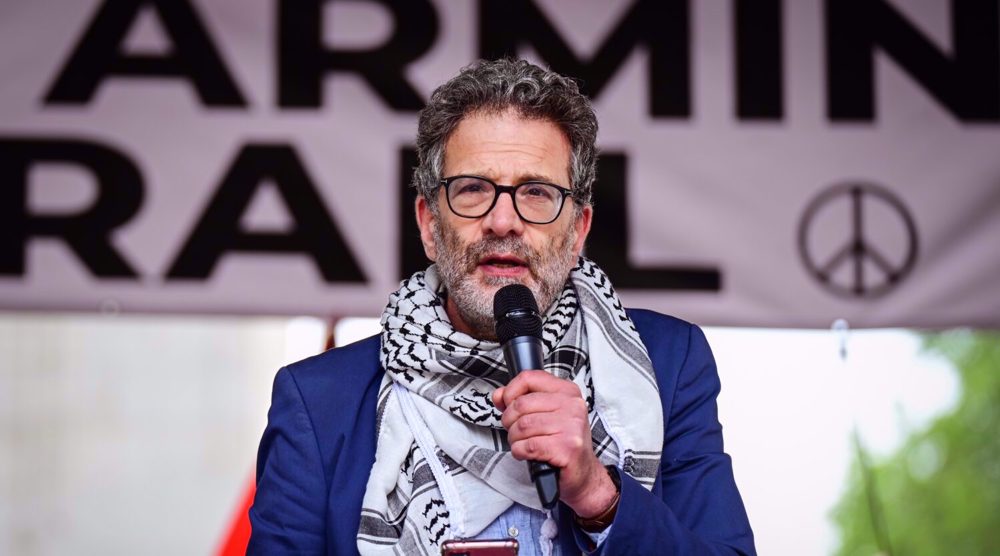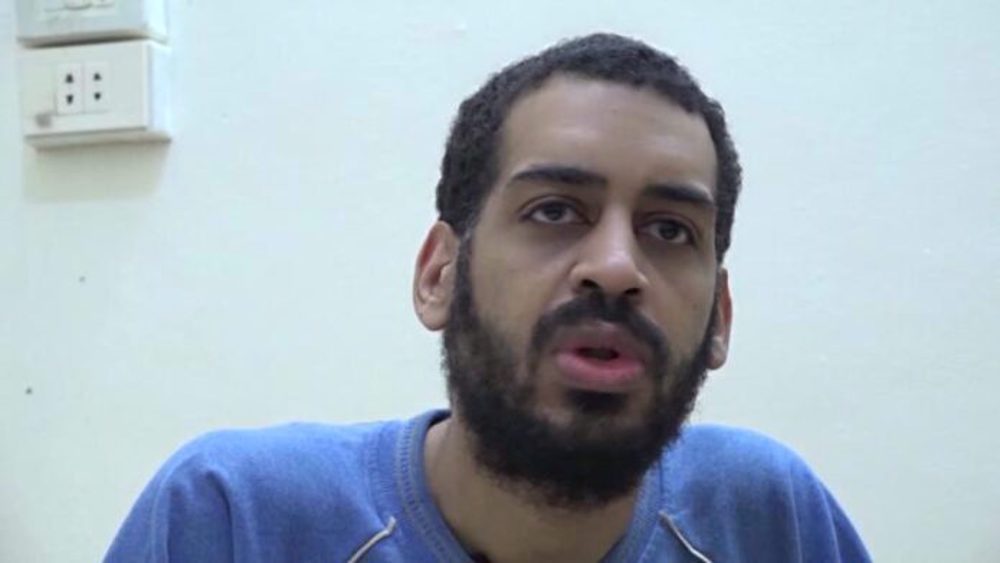Alleged British Daesh member charged after arrest in UK: Police
A British man accused of being a member of a notorious Daesh cell has been charged with terrorism offenses after returning to the UK.
In a statement on Thursday, police said a 38-year-old man had been charged with various terrorism offenses following an investigation by the Metropolitan Police's Counter Terrorism Command.
It further said the suspect, known as Aine Davis, was arrested by officers after landing at Luton airport on a flight from Turkey, where he was serving a seven-and-a-half-year sentence for a conviction on terrorism charges.
"He was arrested in relation to offences under sections 15, 17 and 57 of the Terrorism Act, 2000 and was taken to a south London police station, where he currently remains in police custody," the statement said.
Davis is suspected to be a member of a Daesh kidnap-and-murder cell known as the "Beatles," which held dozens of foreign hostages in Syria between 2012 and 2015. The "Beatles" cell is believed to have been made up of four members. They are accused of abducting at least 27 journalists and relief workers from the United States, Britain, Europe, New Zealand, Russia, and Japan.
They were all allegedly involved in the murders of American journalists James Foley and Steven Sotloff, as well as aid workers Peter Kassig and Kayla Mueller.
The quartet allegedly tortured and killed the four American victims, including by beheading, and Daesh released videos of the murders for propaganda purposes, which caused outrage across the world.
Davis was convicted on drugs offences and was jailed in 2006 for possessing a firearm before going to Syria. He was radicalized in prison where he became acquainted with Mohammed Emwazi, another "Beatles" executioner, who was killed by a drone strike in Syria in 2015.
Two other members of the group were captured and put before judges in the United States.
Former British national Alexanda Kotey, 38, is serving a life sentence; and El Shafee Elsheikh, 34, another former British national, is due to be sentenced next week in the US after being convicted in April.
Extremists from across Europe joined Daesh in droves in 2014, when the Takfiri terror group launched its campaign of death and destruction in Iraq and Syria. Back then, many European leaders ignored repeated warnings that militants could return home one day and that they would be a serious security challenge across the continent.
They instead allowed their nationals to join the Takfiri terror outfit in the hope that they would help topple Syrian President Bashar Assad. To that aim, the United States also supported Daesh and intentionally paved the way for it to gain power in Syria.

British celebrities condemn BBC removal of Gaza documentary

Palestine Solidarity Campaign director on trial

BBC blasted for pulling documentary on Gaza children after Israel lobby pressure
Over dozen settlers injured in anti-Israel operation near Haifa
Pezeshkian: Iran open to talks but won’t capitulate to bullies
VIDEO | Iran unveils advanced naval arsenal
VIDEO | Reunion of released Palestinians and their families in Khan Yunis
Kurdish leader Ocalan calls on PKK militants to end war with Turkey
Health leader warns Africa's health services at risk of 'collapse'
VIDEO | Press TV's news headlines
Iranian flotilla makes port call in India with 'friendship message'









 This makes it easy to access the Press TV website
This makes it easy to access the Press TV website